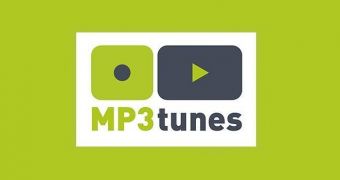Michael Robertson, the founder of MP3Tunes, was found liable for infringing copyright of Capitol Records, EMI and other record labels.
Robertson is the developer behind several websites, including MP3Tunes.com which was launched in 2005. The project soon grew to boast a catalog of over 400,000 recordings by 40,000 artists.
It wasn’t long before the site got on the bad side of a lot of people. In 2007, the site was sued and a verdict has only now been reached. According to the federal judge, MP3Tunes and Robertson are liable for directly infringing copyright for a number of songs, with Robertson personally partaking in such activities.
As Hollywood Reporter points out, however, the biggest issue during the trial was the “willful blindness” with which the copyright issue was treated.
During all these years, the case had its ups and downs, as you’d expect. Record labels tried their best to put down Robertson and his website, while the founder tried to prove his innocence. He argued, for instance, that record labels hadn’t actually properly registered copyrights on their songs and brought evidence that the companies had distributed free songs as part of marketing campaigns.
Despite all his efforts, however, the jury came back with an unfavorable decision for him. While the music industry and anti-piracy advocates are rejoicing now, the case will set out a precedent for other similar sites.
The sentence for these crimes will be announced at a later time.
On the other hand, however, Viacom didn't manage to win the case against Google and YouTube, a lawsuit filed in the same year as the one against MP3Tunes. The case had an undoubtedly higher profile considering the popularity of YouTube and the fact that Google is one of the biggest companies in the world and Viacom did not manage to convince judges that the video streaming site was doing anything wrong.
In this particular case, Google and YouTube were being accused of infringing copyright on thousands of Viacom shows simply because they did not police the content that was being uploaded by users on the site.
Of course, considering just how many hours of content are being uploaded each minute, it would be a herculean effort that would harm the very idea of free Internet. YouTube has generally agreed to remove videos after DMCA takedown notices were sent, but the idea of going through all the videos as they were being uploaded wasn’t ideal.
Seeing that there was no end to the case, YouTube and Viacom decided to settle it, putting an end to a seven-year-long lawsuit. The details of the settlement were not made public, but sources said that no money was involved.

 14 DAY TRIAL //
14 DAY TRIAL //